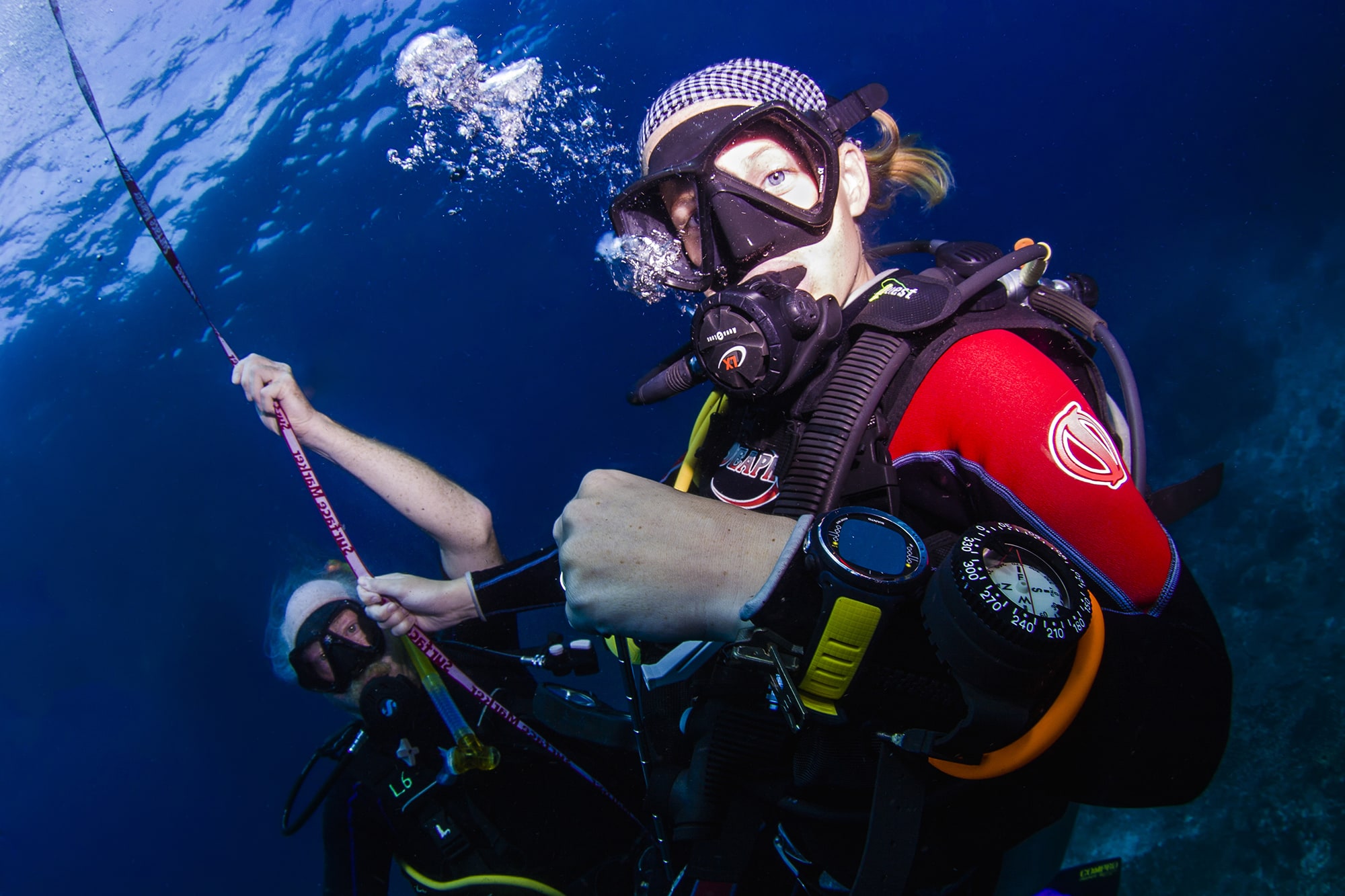Coming up short
As DAN Members you know that DAN continuously gathers data on dive injuries. A small, but growing, number of cases reported to DAN involves what was traditionally considered a fairly rare condition. It's called immersion pulmonary edema (IPE), or pulmonary edema of diving. When this occurs, a diver or surface swimmer experiences an accumulation of fluid in the lungs. The number of IPE cases has increased. Why the increase is unclear. The condition itself is not clearly understood, but since it is occurring more frequently, divers should know about it.
How does it feel?
Symptoms include shortness of breath or the sensation of not getting enough air while at depth, often after only a few minutes in the water. Typically the symptoms start before ascent. As divers with this condition ascend, they experience no improvement. In fact, they usually cough up pink, frothy sputum: Such fluid in the lungs can reduce the amount of oxygen reaching the blood. The diver may have noisy breathing that can be heard without a stethoscope. The condition usually occurs after only a few minutes in the water at a shallow depth, so it is not usually confused with cardiorespiratory decompression sickness (or "chokes"). Chest pain is usually absent, unless the condition is due to a heart attack. If the diver lacks sufficient amounts of oxygen, he or she may exhibit confusion or loss of consciousness.
How does it happen?
Originally, IPE was thought to occur almost exclusively in cold water. While this condition seems to be more common in cold water, it has also been reported in warm waters. During immersion in water, blood is redistributed from the legs to the heart and blood vessels in the lungs. Usually the heart and lungs compensate for this, but sometimes the resulting increased pressure within the blood vessels in the lungs causes fluid to traverse the small vessels (capillaries) and enter the gas-containing spaces of the lungs. Sometimes this is caused by an underwater myocardial infarction (heart attack), abnormalities of the heart muscle or heart valves or hypertension. Usually there is no obvious cause. Cold water may be a predisposing factor because immersion can cause the small arteries to constrict, increasing the resistance to the flow of blood. Vasoconstriction in response to cold can be exaggerated in people with hypertension or those likely to develop it. But some people who experience IPE are young and healthy, even military recruits. Records indicate that 15 cases of IPE were reported to DAN in 2006, and 12 cases in 2005. It is likely that additional cases occurred but were simply not reported. Aspiration of water (also called submersion incidents) can imitate IPE. It is also possible to have both submersion incident and IPE occur at the same time: When a diver surfaces and feels as though he or she is suffocating, a typical reaction is to remove the regulator from the mouth in an attempt to gain more air. In rough seas, the diver can also aspirate (breathe in) water. A lung overexpansion injury, or pulmonary barotrauma (PBT), is another condition that can cause shortness of breath. The treating physician can distinguish between these conditions by obtaining an accurate history from the diver about the timing of the symptoms. If shortness of breath began during descent, PBT is unlikely. Water aspiration can usually be confirmed by a conscious diver.
The treatment for IPE
Immediate treatment should include breathing oxygen while in transit to a hospital. Some IPE cases have been fatal, although most cases resolve on their own during observation in a hospital. A closer examination may reveal hypertension, a heart attack, cardiac valve disease or impaired contraction of the heart. Divers who have experienced IPE are concerned with the likelihood it will recur. Unfortunately, that likelihood is not known, so many physicians recommend that people with a history of IPE not return to diving. Still others recommend taking an antihypertensive medication before each dive. Before considering a return to diving after IPE, DAN recommends the diver consult with a doctor knowledgeable about the condition. Additionally, DAN supports recommendations of the American Heart Association regarding cardiovascular risk assessment. Diving should be considered an exercise program. Individuals older than 40 who would like to take up scuba diving or continue scuba diving should have a medical evaluation if they:
- do not engage in at least 30 minutes of moderate-intensity (40-60 percent of maximum capacity) physical activity on most, and preferably all, days of the week;
- have hypertension, high cholesterol, smoke cigarettes, have family members who have died prematurely of heart disease or diabetes;
- have a suspected heart condition.

